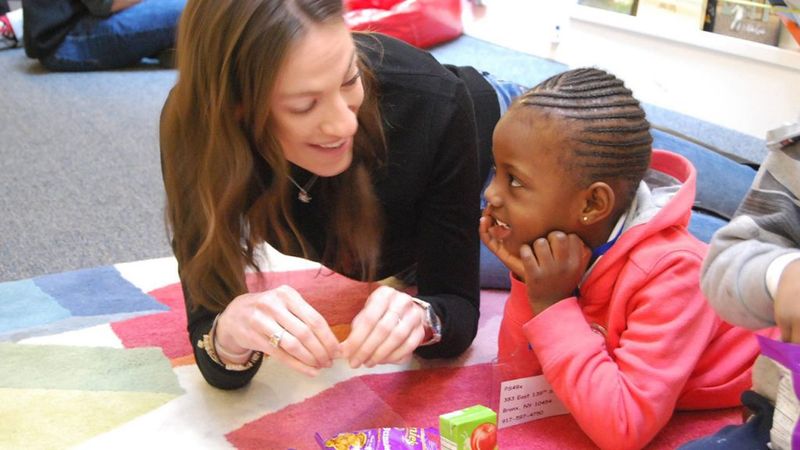Growing up, many of us experienced behaviors from our parents that seemed caring or affectionate but were, in fact, deeply unhealthy. Reflecting on these actions can be illuminating, helping us understand the emotional landscapes of our childhood and the impact of normalized behaviors.
This listicle explores fifteen such behaviors, encouraging a reflective and empathetic look at how love can sometimes be misconstrued. From rewarding silence to using food as affection, these behaviors often carry emotional consequences.
By bringing these to light, we aim to foster understanding and healing, avoiding blame while seeking insights into our pasts.
1. Rewarding Silence Instead of Emotional Honesty
In many households, silence was golden. A quiet child was often seen as a well-behaved one, leading parents to reward silence over emotional honesty. This behavior, while seemingly benign, can encourage children to suppress emotions. Imagine a young child who learns that speaking up might lead to conflict or disappointment. Instead of learning to articulate their feelings, they may retreat inward, holding back thoughts and emotions.
This pattern, ingrained over years, can result in difficulties expressing oneself as an adult. Emotional engagement requires practice, and when unpracticed, expressing emotions becomes challenging. Teaching children to share openly, without fear of judgment, fosters healthier communication habits.
2. Using Food as a Substitute for Affection
Food is often intertwined with love in many cultures. Parents, with the best intentions, might use food as a way to show affection or comfort. A child offered sweets to soothe sadness may learn to associate food with emotional comfort. This practice can lead to emotional eating patterns that follow them into adulthood.
While sharing meals is integral to family bonding, relying on food as an emotional crutch can have long-term repercussions. Healthy emotional support involves listening and validating feelings, not just offering a snack. Recognizing and addressing the root cause of emotions, rather than masking them with food, promotes emotional well-being.
3. Teaching You to Please Others Before Yourself
Being taught to prioritize others’ needs over your own can feel like selflessness but often leads to neglecting oneself. A child praised for helping without question may grow up feeling obligated to please others, even at a personal cost. This can manifest in adulthood as difficulty asserting personal boundaries. While altruism is valuable, it must be balanced with self-care.
Children need to understand that their needs are equally important. Learning to say no, to put oneself first sometimes, is crucial for mental health and personal growth. Encouraging children to voice their own needs fosters a sense of self-worth and independence.
4. Treating Your Success as a Reflection of Their Worth
Parents naturally take pride in their children’s achievements. However, when a child’s success becomes tied to a parent’s self-worth, it can create undue pressure. A child may feel their value is only in their accomplishments, leading to anxiety and perfectionism. The pursuit of success becomes about validation instead of personal fulfillment.
Children should learn that their worth is not contingent on achievements. Encouragement should focus on effort and growth, not just results. By celebrating a child’s individuality and process, parents help build a foundation of self-esteem that isn’t dependent on external validation. This balance fosters genuine confidence and self-assurance.
5. Discouraging Emotional Expression as ‘Dramatic’
Emotions are complex and deserve expression. Labeling a child’s emotional reactions as ‘dramatic’ can stifle this natural expression, suggesting that feelings should be hidden. This can lead to internalized shame about one’s emotions. Children need to learn that all feelings are valid and part of the human experience. Being dismissed when trying to communicate emotions might result in a reluctance to share them in the future.
Parents should encourage open discussions about emotions, allowing children to articulate their feelings without fear of ridicule. This nurturing environment cultivates emotional intelligence, enabling children to handle their emotions healthily and constructively.
6. Expecting Adult-Level Responsibility Too Soon
Giving children responsibilities is essential for development, but expecting them to handle adult-level duties prematurely can be overwhelming. A child burdened with responsibilities beyond their years might miss out on the joy of childhood. Balancing chores with play is essential in fostering a well-rounded upbringing. Children should learn accountability through age-appropriate tasks, not through stress-inducing obligations.
Encouraging the gradual assumption of responsibilities allows children to develop confidence and life skills without feeling overburdened. Parents should ensure that their children enjoy their formative years, providing guidance and support without overwhelming demands. This approach nurtures independence and resilience.
7. Making You Earn Affection Through Achievement
In some families, affection may be intertwined with achievement. A child might feel that love is conditional, dependent on their successes. This can create a cycle of striving for accomplishments to earn affection, leading to issues with self-worth. Children should know they are loved for who they are, not just for what they do.
Unconditional love fosters an environment where they can pursue passions without fear of losing parental affection. Parental support should emphasize effort and personal growth, not just results. Encouraging children to explore their interests helps them develop a sense of self, independent of achievements.
8. Mocking or Teasing Under the Guise of ‘Just Joking’
Humor is a valuable family bonding tool, but joking at a child’s expense can be harmful. Teasing, even in jest, may hurt a child’s self-esteem and create insecurities. Mocking can blur the lines between playfulness and insult. Children might laugh along to avoid conflict, hiding their hurt. Families should be mindful of the impact words can have, even when meant in fun.
Encouraging respectful and supportive humor helps build confidence and mutual respect. Jokes that uplift rather than undermine foster a positive family dynamic. Teaching children when to speak up if a joke crosses a line is crucial for healthy relationships.
9. Invalidating Your Stress with ‘You Don’t Have Real Problems’
Every age comes with its own challenges. Dismissing a child’s stress by comparing it to adult problems can invalidate their feelings. Such comments may suggest their concerns are trivial, discouraging them from sharing future problems. Stress is relative, and children need to feel heard and understood. Encouraging open communication about challenges helps them develop coping strategies.
Acknowledging their stress teaches resilience and problem-solving. Parents should strive to create an environment where children feel their concerns are taken seriously. This support helps children learn to manage stress effectively, preparing them for future challenges with confidence and understanding.
10. Comparing You to Others ‘for Your Own Good’
Comparison is often intended as motivation, but it can have the opposite effect. Constantly being compared to others can lead to feelings of inadequacy and hinder self-esteem. Children may grow up believing they must meet others’ standards rather than embracing their uniqueness. Instead of comparison, encouragement should focus on individual strengths and progress.
Celebrating personal achievements fosters a strong sense of self-worth. Children thrive in environments where their individuality is valued and supported. Parents should aim to nurture each child’s unique talents and interests, fostering a sense of personal identity. This approach supports healthy development and self-confidence.
11. Encouraging Self-Sacrifice Without Balance
Self-sacrifice can be a commendable trait, but without balance, it can lead to burnout and resentment. Teaching children to prioritize the needs of others without considering their own can create an unhealthy pattern. They may learn to neglect their well-being, believing self-care is selfish. Balance is key. Children should understand that taking care of themselves is crucial for their ability to care for others.
Encouraging moderation and self-awareness fosters healthier relationships and personal fulfillment. Parents should model balanced self-care, demonstrating that self-sacrifice is noble only when it doesn’t come at the expense of one’s own well-being.
12. Confusing Control with Protection
Parents naturally want to protect their children, but excessive control can stifle growth. Shielding a child from every challenge may prevent them from developing resilience and problem-solving skills. Children benefit from experiencing manageable risks and learning from failures. Protection should not equate to control. Allowing children to make choices and learn from mistakes fosters independence and confidence.
Parents should guide, not dictate, offering support while encouraging autonomy. This approach prepares children for life’s uncertainties, equipping them with the skills needed to navigate challenges independently. A balanced approach to protection nurtures capable, self-reliant individuals.
13. Making Your Value Conditional on Obedience
Obedience is often seen as a sign of respect, but when love becomes conditional on it, children may feel their worth is tied to compliance. This can lead to struggles with self-worth and autonomy. Children need to know they are valued for who they are, not just for following rules. Encouraging critical thinking and questioning helps them develop a strong sense of self.
Parents should focus on guiding rather than controlling, fostering an environment where children feel safe to express themselves. This nurturing approach helps children grow into confident, independent individuals, understanding that their value is inherent and unconditional.
14. Not Modeling How to Apologize or Repair Harm
Mistakes are inevitable, and how parents handle them influences children’s understanding of accountability. Failing to model how to apologize or repair harm can leave children unsure of how to mend relationships. Demonstrating vulnerability and the art of a sincere apology teaches children valuable lessons in empathy and conflict resolution.
Parents should show that admitting wrongs and making amends are signs of strength, not weakness. This approach fosters a culture of mutual respect and understanding within the family. Teaching children these skills equips them with the emotional tools needed to navigate interpersonal relationships effectively and respectfully.
15. Instilling Shame Instead of Boundaries
Boundaries are essential for healthy relationships, yet some parents use shame as a tool for compliance. This approach can undermine a child’s confidence and understanding of personal boundaries. Children should learn to set and respect boundaries without feeling guilty. Parents should guide with empathy, helping children understand the importance of boundaries in maintaining healthy relationships.
Encouraging open conversations about limits fosters a sense of autonomy and self-respect. Teaching children to assert their needs confidently, without fear of shame, empowers them to navigate social interactions with clarity and respect. This approach supports emotional well-being and personal development.
















